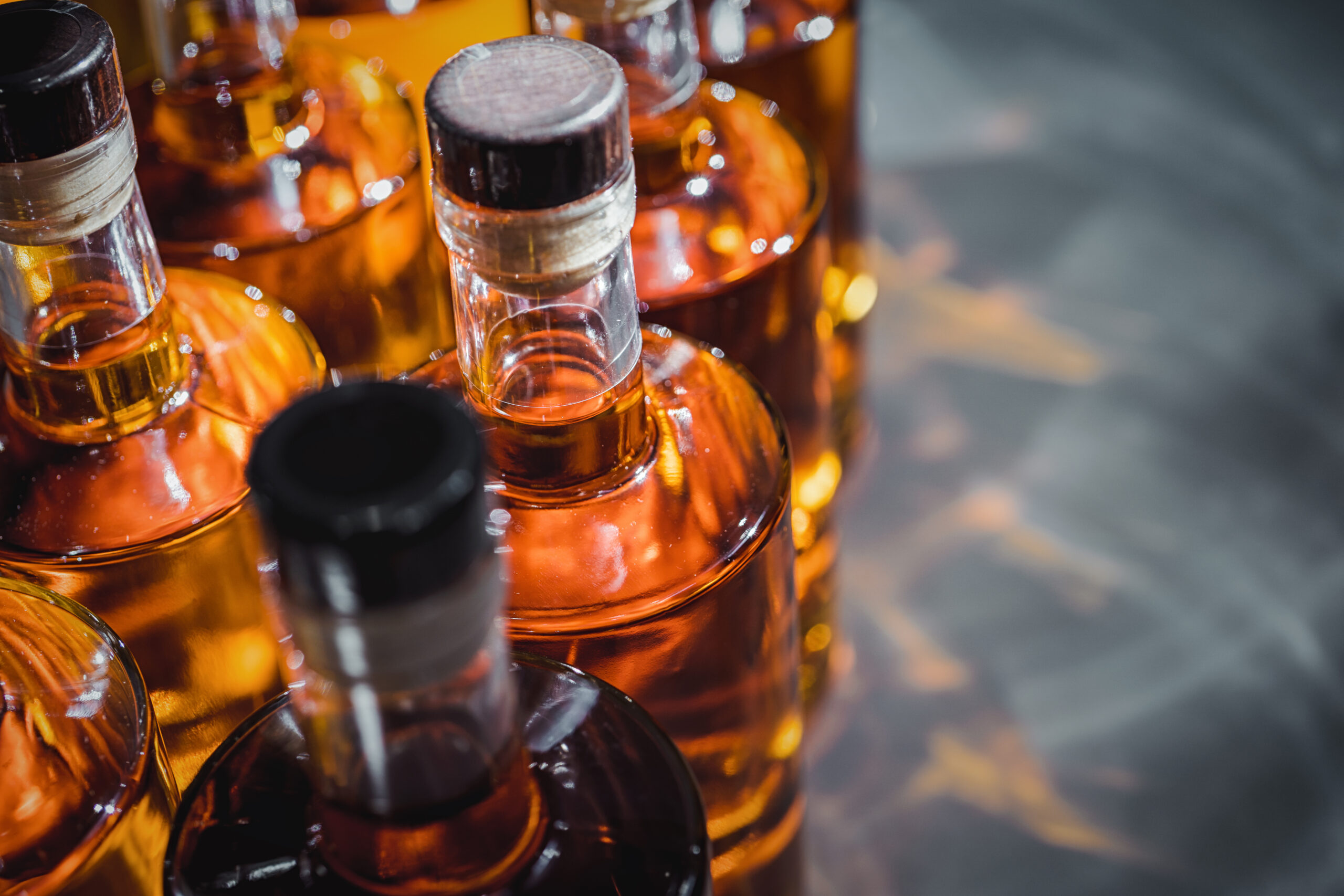Inspiration and enthusiasm
You don’t have to be passionate about whisky to consider whisky investment – but it certainly helps.
Whisky has long been a personal passion of mine. My interest was first sparked by my father, who introduced me to a top-quality bottle Scotch – Glendronach from cask number 1901.
In fact, that’s what inspired me when it came to naming my own whisky investment company – Whisky 1901. Today, I have a personal collection of over 100 bottles of whisky, worth around £100K in total. My favourite is a Glendronach from the 1930s. I am also a big cask collector myself.
Similarly, one of our cask investors inherited a rare whisky bottle collection from his grandfather who was head of security for the prestigious Black & White distillery. It was this that first sparked his enthusiasm for the spirit.
Now an avid whisky collector himself, he recognises the enduring value of what is often referred to as ‘liquid gold’, both the bottled and barrelled variety.
For many, what starts out as a love of whisky as a drink often leads naturally into building a bottle collection. In more recent years, whisky investment enthusiasts have the option to buy their own casks too.
For those just starting on their whisky journey, check out our blog on How to Build Your Own Whisky Collection in Five Bottles.
Hitting the headlines
There’s no doubt that when it comes to whisky, rare bottle sales are typically what make national headlines. In November 2023, a rare Scotch whisky – a Macallan – became the world’s most expensive bottle selling for a cool £2.1m.
In fact, the last decade has seen whisky prices rise to unprecedented levels, especially those of old and rare Scotch single malt bottles. This has been driven by a surge of interest in whisky investment and auction sites. Plus other market forces, in a similar way to other commodities.
That said, in July 2022, a 1975 cask of Ardbeg Islay single malt Scotch sold to a private collector for a record £16m. There was also the case of the forgotten Macallan cask selling for £1m. Distilled at Macallan on 5 May 1988, the cask had been held in bond in Moray for almost 34 years before the distillery reminded them it was still maturing in the warehouse.
Cask versus bottle
Most of us can only dream of owning a bottle or barrel of this value. But, regardless of the size of your whisky investment pot, there’s the all-important question of cask versus bottle when starting out on your investment journey.
Typically, one of the most important considerations is timeframe for realising your investment. The main difference when purchasing a cask over a bottle is that you’re investing in a legacy with barrelled whisky, as the above examples demonstrate.
We usually recommend investing for a minimum of 10 years, dependent on the year of the cask. This is to achieve full maturation of the cask, optimum value, and therefore the greatest return.
That said, the potential return even in the short term can be significant, particularly when compared to savings or stocks and shares. In fact, one of our investors saw a 19% ROI on their whisky cask in just 18 months.
On the other hand, bottled whisky is a liquid asset, no pun intended. And the defining feature of a good liquid asset is its ability to be sold quickly whilst not losing its value. In both these regards, Scotland’s ‘liquid gold’ often outperforms actual gold.
Growing appeal for cask investment
There’s growing appetite for whisky barrel investment. And for good reason. The cask market has significantly outperformed traditional investment options in recent years.
Investors are turning to whisky casks to diversify their investment portfolios and grow wealth in an uncertain financial climate. The BC20 Cask Index exhibited significant growth in 2022 and shows a 15.86% annual capital growth rate for the year.
Despite fluctuations, market stability remains an enduring characteristic of whisky casks, even in unpredictable financial markets. This underlines the consistency of the investment compared to other asset classes such as gold.
And, unlike many alternative investments, the value of whisky casks is not driven by economics alone, but by maturation. A cask purchased today will become a different, more desirable, and therefore more valuable, asset with each year that passes.
Passion investment
As well as the prospect of long-term financial gain, many of our 250+ cask investors are drawn to the romance of owning and even bottling their own cask one day, when the time is right. That’s why at Whisky 1901 we have introduced a bottling service for our investors looking to sell their product or to collect and/or consume themselves.
Whether your preference is for bottled or barrelled Scotch, or both, whisky is an attractive and an increasingly accessible alternative investment.
It’s also worth remembering that the price of barrelled whisky is inherently linked to the price of bottles purchased by consumers. The growing popularity of the drink across international markets has a positive impact on cask investment too.
In that respect, the relationship between bottle and cask is symbiotic. If in doubt about where to invest your money, speak to a trusted whisky investment partner.
Disclaimer: Whisky cask investments are unregulated in the UK and the value of investments can fluctuate, increasing or decreasing, as with any stock investment.




